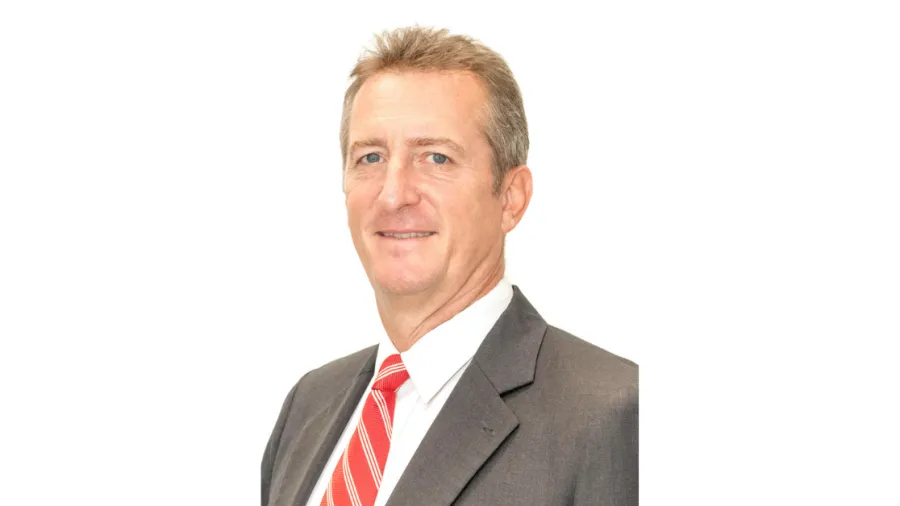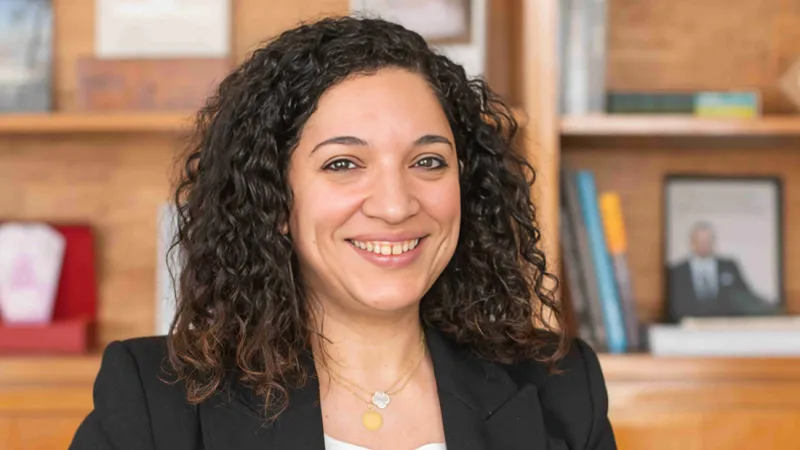
Shift to green, inclusive, resilient business is the next big thing, says PwC partner
Global organisations must take responsibilities seriously for a sustainable future.
Greg Unsworth is PwC Singapore’s Risk Assurance and Digital Trust Leader and previously served as the company’s Technology Sector Leader for Asia Pacific. He oversees a team of 20+ partners and 400 professional staff who help clients manage business risks, enhance governance and control programmes, comply with regulations, and build digital trust.
He also sits on the firm’s leadership team and has significant experience advising clients on digital business initiatives and managing risks. He pushed to establish PwC Singapore’s Reimagine Digital programme and Digital Innovation Office, which focuses on delivering services through technology platforms, building talent capability and services to address clients’ digital agenda, as well as investing in key digital assets including AI-enabled business models and Smart Nation imperatives.
Unsworth is a member of several PwC global advisory and editorial committees involved in developing industry thought leadership and works with our global and regional industry networks and digital innovation leaders.
As a judge in this year’s SBR International Business Awards and National Business Awards 2022, he shares his thoughts on achieving a more sustainable business environment, business disruptions and remote work, and building trust with stakeholders during a crisis.
You have worked in Singapore for the last 19 years. What was the driving factor behind your move? What were some of the initial challenges of the move and how did you overcome them?
It was the desire to practise in one of the fastest-growing, most dynamic economies in the world that drove my decision to move to Singapore, a city that was right at the heart of the amazing dynamism and development in Asia. I had gained quite a bit of international experience as a professional at that stage of my career and saw this as a great opportunity to develop myself further as a leader and a practitioner in a new, fast-paced and extremely exciting business environment.
Singapore is such a wonderful place to live in, and my family and I settled in quite quickly. The biggest challenge was to build my networks and connections in the local market and get a good sense of the pulse of business and how things got done in Singapore. It has been an amazing journey so far and one that continues to offer up new challenges and opportunities for me every day as a leader.
You are part of PwC Singapore’s leadership team. In the past 19 years, how have you seen the business landscape change?
There has been tremendous growth and change over the last 19 years since I have been in Singapore. The development and transformation of major industry segments including the technology and telecoms sectors, the financial services industry and the whole supply chain ecosystem strike me as some of the most impactful changes for Singapore’s development. It has also been very impressive and noteworthy that many local businesses in Singapore have stepped up on the world stage during this period and developed globally successful brands and reputations.
Another major transformative change that I have seen in recent times has been the acceleration of digital adoption including embracing cloud-based infrastructure and applications and new ways of operating to enable effective mobility of workforces. This trend gained even greater pace as COVID-19 took hold over the last few years and continues to shape the future of business. I expect Singapore to continue to take the lead and show the way globally in embracing digital transformation and upskilling our workforce and society to support a human-led, technology-enabled future.
Beyond this, the next big transformation that I expect is around ESG and this is also already well underway and gaining real momentum with leading organisations taking their responsibilities seriously to help develop a more sustainable, inclusive future. I expect both the government and the private sector to play a major role in developing a green-friendly, resilient and inclusive business environment and society for future generations.
What disruptive and emerging technologies can we expect in the short, middle, or long term for companies to reimagine digital?
The pace of digital transformation and business disruption has never been faster. It was remarkable, for instance, to see how agile organisations could be in embracing technology to support remote working when the pandemic made that an imperative for business survival and to protect the health and safety of workforces. It is this spirit of the ‘art of the possible’ that many organisations are now embracing to reshape their competitive positioning, reach new customers and business partners and enable their workforce through technology.
In recent years the major transformative force for business has been cloud-based computing. Very few business leaders that I speak with today have not had the deployment of cloud-based infrastructure and/or applications at the core of their technology transformation roadmaps. Other emerging technologies have played their part with many organisations focused on automating their business practices and using tools and applications to better harvest and use valuable data to drive good business decisions and outcomes.
Whilst I do think in future that we will see very innovative business models enabled through blockchain technology, drones and everything the metaverse can provide, I think the next big wave of transformation will be all about fully developing AI-enabled business models at scale. This has the potential to reshape whole industries and the way that society engages with technology in future. This will not be without its risks, and this is where regulations and standards will have to play their part to ensure responsible and ethical use of AI technology.
In uncertain times, such as the pandemic that we are facing now, how can companies mitigate risk and build trust with their stakeholders?
In periods of crisis or major change, building trust with stakeholders is incredibly important. It is only when trust and confidence are established that business leaders and organisations as a whole can accelerate the implementation of new strategies, business models and technologies and forge new partnerships effectively. At the heart of building trust is communicating a vision and strategy, bringing stakeholders along for the journey and delivering sustained outcomes.
In doing so, building in sound risk management practices upfront is vital. In particular, as companies undergo technology lead transformation, deploying sound digital risk solutions upfront becomes ever more important.
Key challenges that many organisations are facing and having to prioritise include cyber security and data protection risk, responding to evolving regulatory compliance needs and addressing workforce health and safety requirements. Organisations can develop trust effectively by putting in place robust mitigation strategies and practices for these and other key risks and ensuring that these are well communicated to key stakeholders and subject to regular monitoring and enhancement.
This is where good mentoring and support from advisors can also be very valuable for leaders given a rapidly shifting risk landscape.
Please share some of the key thought leaders and innovations that you are working on at PwC Singapore.
As a network, we have recently launched our new global strategy, The New Equation. This strategy is all about helping to build trust and deliver sustained outcomes for our clients, wider stakeholders and society and we are investing ambitiously to support the future needs of business and society. It includes a big focus on the digital and ESG agendas and helping to co-create lasting change for businesses and society. It is about ensuring that we are meeting the expectations of not just today’s stakeholders, but tomorrow’s as well.
Over the last few years, we have been very active in rolling out our Reimagine Digital strategy and campaigns and have invested significantly in technology platforms and upskilling of all our people to embrace digital technologies and tools and enhance the way we serve our clients.
Going forward, we will be further investing in developing digital assets, platforms and tools to support new ways of working and to create new value for our clients. For this, we will be evolving our approach and encouraging what we refer to as a ‘citizen-led”’ innovation; meaning all of our staff can contribute their ideas and be empowered to make a difference to the way we work as a practice. There will be more to come as we further launch these new initiatives.
As a judge in the SBR International Business Awards & National Business Awards, what are you looking for in a winner?
For me, beyond the use of good creativity, innovation and performance; I am looking for an organisation that has a focus on solving real-world problems and a good sense of purpose that it can communicate to its stakeholders. I am also looking for a socially responsible organisation that has an eye on the future needs of society, rather than just a short-term perspective.



![SBR 5 Lorem Ipsum News 2 [8 May]](https://cmg-qa.s3.ap-southeast-1.amazonaws.com/s3fs-public/styles/exclusive_featured_article/public/2025-05/a_hand_pointing_to_a_futuristic_technology_5b87c9d0e3_3.png.webp?itok=M3Hf-9XR)
![SBR 4 Lorem Ipsum [8 May Top Stories]](https://cmg-qa.s3.ap-southeast-1.amazonaws.com/s3fs-public/styles/exclusive_featured_article/public/2025-05/a_hand_pointing_to_a_futuristic_technology_5b87c9d0e3_2.png.webp?itok=2m5Wl0MX)


![Exclusive three SBR 12 Lorem Ipsum [8 May]](https://cmg-qa.s3.ap-southeast-1.amazonaws.com/s3fs-public/styles/exclusive_featured_article/public/2025-05/a_hand_pointing_to_a_futuristic_technology_5b87c9d0e3_11.png.webp?itok=8kn_UIfA)
![SBR 3 Lorem Ipsum [ Exclusive 2]](https://cmg-qa.s3.ap-southeast-1.amazonaws.com/s3fs-public/styles/exclusive_featured_article/public/2025-05/a_hand_pointing_to_a_futuristic_technology_5b87c9d0e3_1.png.webp?itok=YCyjLegJ)
![SBR 2 Lorem Ipsum [8 May]](https://cmg-qa.s3.ap-southeast-1.amazonaws.com/s3fs-public/styles/exclusive_featured_article/public/2025-05/a_hand_pointing_to_a_futuristic_technology_5b87c9d0e3_0.png.webp?itok=_cKD-29o)

![Video [Event News]](https://cmg-qa.s3.ap-southeast-1.amazonaws.com/s3fs-public/styles/event_news_featured_article/public/2025-05/screenshot-2025-05-08-at-4.58.53-pm_0.png.webp?itok=Kud35sMs)
![Event News SBR 9 Lorem Ipsum [8 may]](https://cmg-qa.s3.ap-southeast-1.amazonaws.com/s3fs-public/styles/event_news_thumbnail/public/2025-05/a_hand_pointing_to_a_futuristic_technology_5b87c9d0e3_8.png.webp?itok=DTh_dbYp)
![Event News SBR 9 Lorem Ipsum [8 May]](https://cmg-qa.s3.ap-southeast-1.amazonaws.com/s3fs-public/styles/event_news_thumbnail/public/2025-05/a_hand_pointing_to_a_futuristic_technology_5b87c9d0e3_7.png.webp?itok=vzDAzb6V)
![Event News SBR 8 Lorem Ipsum [8 May]](https://cmg-qa.s3.ap-southeast-1.amazonaws.com/s3fs-public/styles/event_news_thumbnail/public/2025-05/a_hand_pointing_to_a_futuristic_technology_5b87c9d0e3_6.png.webp?itok=jvHFc4P6)
![Video [Event News]](https://cmg-qa.s3.ap-southeast-1.amazonaws.com/s3fs-public/styles/video_thumbnail/public/2025-05/screenshot-2025-05-08-at-4.58.53-pm_0.png.webp?itok=yZnI0YBb)
![Video 1 SBR [8 May]](https://cmg-qa.s3.ap-southeast-1.amazonaws.com/s3fs-public/styles/video_thumbnail/public/2025-05/screenshot-2025-05-08-at-4.58.53-pm.png.webp?itok=9AAeRz_k)

 Advertise
Advertise

